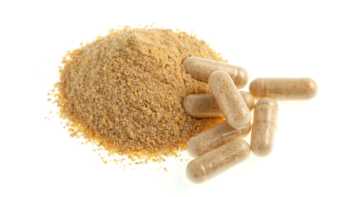
Answer:
What Is PCOS?
Polycystic ovarian syndrome (PCOS) is the most common hormonal disorder in women of childbearing age. It characterized by excessive androgen hormones such as testosterone (hyperandrogenism), ovulary dysfunction including infrequent, irregular or prolonged menstrual cycles, the frequent development of ovarian cysts, and infertility. Women with PCOS may also have elevated insulin levels (hyperinsulinemia) and poor insulin and blood sugar control, which can lead to weight gain and obesity, and increased cholesterol levels and cardiovascular risk. Other common symptoms related to these hormonal imbalances include thinning hair, development of facial hair (hirsutism), acne, and darkening of skin and skin tags around the folds of the skin (such as around the neck, armpit or groin).
There is no cure for PCOS, but lifestyle management (dietary, exercise and behavioral interventions) and use of certain medications can help manage some PCOS symptoms. For example, hormonal birth control may to help lower androgen levels and regulate periods, and metformin can help to improve insulin and blood sugar control. Anti-androgen medications such as spironolactone (Aldactone), leuprolide (Lupron, Eligard) and finasteride (Proscar, Propecia) are sometimes also prescribed to help reduce hair loss.
Supplements for PCOS
As discussed below, several different supplements may be helpful for women with PCOS, although none appear to be recommended by current treatment guidelines, and all women with PCOS should consult with their physician before taking supplements, particularly those that may affect blood sugar levels. Myo-inositol, alone or in combination with D-chiro-inositol, folic acid, or alpha lipoic acid may improve insulin sensitivity and have other benefits, but supplementation with high doses of D-chiro-inositol is not recommended. Vitamins D, B-12, and folic acid may be helpful in women with PCOS with low levels of these vitamins. Chromium, melatonin and quercetin may have very modest benefits in women with PCOS.
As described below, several small studies have suggested modest benefits from inositols for some symptoms of PCOS. However, an international panel of PCOS experts concluded in 2023 that although there is limited potential for harm, there little evidence that inositols may be beneficial for ovulation, hirsutism (unwanted hair), or weight management, noting that metformin is recommended over inositol for hirsutism and central obesity, and that specific forms and dosages of inositol cannot be recommended due to lack of quality research (Teede, J Clin Endocrinol Metab 2023).
Two specific forms of inositol, myo-inositol and D-chiro-inositol (DCI), are the most studied for PCOS, likely due to their potential effects on insulin sensitivity and other hormonal activity. There is some evidence that myo-inositol, taken alone or in combination with DCI, improves insulin sensitivity and may potentially have other benefits, but more research is needed. It is generally not recommended to supplement with DCI alone, or with high doses of DCI.
Myo-inositol is a sugar alcohol that is produced in small quantities in the body, but is mostly obtained through the diet (average intake is about 900 mg per day), through a wide variety of foods, including many fruits, vegetables and beans (Clements, Am J Clin Nutr 1980). In the body, myo-inositol is the most abundant inositol (including in the ovaries), and a small percentage is converted into DCI. Both compounds can improve insulin sensitivity and promote the production of follicular signaling hormone (FSH)(Unfer, Int J Endocrinol 2017; Chhetri, Front Pharmacol 2019; Gambioli, Eur Rev Med Pharmacol Sci 2021). However, they appear to have opposing effects on certain other hormones: myo-inositol promotes the production of estrogen, while DCI promotes the production of testosterone. In women with PCOS, it has been suggested that increased conversion of myo-inositol to DCI may contribute to elevated levels of testosterone and other androgens (Unfer, Int J Mol Sci 2020). High doses of DCI (1,000 mg DCI taken in combination with 6,000 myo-inositol) can also inhibit the absorption of myo-inositol (Roseff, Int J Endocrinol 2020). For these reasons, some researchers recommend that supplementation with high doses of D-chiro-inositol, or D-chiro-inositol alone, be avoided (Genazzani, Reprod Biomed Online 2016; Roseff, Int J Endocrinol 2020).
A study among 26 obese women with PCOS (average age 26) found that taking 1,000 mg of myo-inositol twice daily for 6 months improved insulin sensitivity as effectively as taking 850 mg of metformin twice daily. However, metformin, but not myo-inositol treatment, reduced body weight, improved menstrual patterns, and decreased certain hormone levels, suggesting that metformin was more effective at improving hormonal abnormalities associated with PCOS (Tagliaferri, Clin Endocrinol 2017). Another study found that taking 4,000 mg of myo-inositol daily for 6 months was as effective as taking 1,500 mg of metformin daily to improve insulin sensitivity, reduce body mass index (BMI) and improve menstrual cycles. However, neither treatment reduced acne or hirsutism (male-pattern hair growth in women) (Fruzzetti, Gynecol Endocrinol 2017).
Taking myo-inositol in combination with folic acid has been found to improve hormonal parameters in women with PCOS. A study in 20 overweight women with PCOS found that taking 2,000 mg of myo-inositol plus 200 mcg of folic acid (Inofolic, LO.LI. Pharma) daily improved insulin sensitivity and reduced levels of insulin, luteinizing hormone, prolactin, and testosterone, as well as reduced the ratio of luteinizing hormone to follicle-stimulating hormone after 12 weeks compared to taking folic acid alone (Genazzani, Gynecol Endocrinol 2008).
Myo-inositol may improve ovulation among women with PCOS who have infrequent menstrual periods, but this does not appear to increase pregnancy rates. In two clinical trials among women with PCOS who failed to ovulate and/or were infertile taking 2,000 mg of myo-inositol plus 200 mcg of folic acid twice daily for three months was shown to improve ovulation, but did not increase pregnancy rates (Gerli, Eur Rev Med Pharmacol Sci 2007; Pourghasem, Arch Gynecol Obstet 2019).
It has been proposed that, if taking combination of myo-inositol and DCI, the ratio myo-inositol to D-chiro-inositol should reflect the naturally-occurring ratios found in blood (40:1) and follicular fluid (100:1) (Roseff, Int J Endocrinol 2020; Genazzani, Reprod Biomed Online 2016). Although there is little research to date to confirm this, one small, retrospective study in Turkey among normal and overweight women (average age 25) with PCOS and without insulin resistance who had irregular and/or infrequent menstrual periods that were anovulatory (non-egg producing) found that this ratio of myo-inositol to DCI (550 mg myo-inositol + 13.8 mg DCI) increased progesterone levels and ovulation rates in normal-weight, but not obese participants. Among the participants who wanted to conceive, more spontaneous pregnancies occurred among normal-weight women (six of the seven (85.7%) versus two of the six (33.3%) participants who were obese); however, this was not analyzed for statistical significance (Colak, J Obstet Gynaecol 2020).
Be aware that myo-inositol/DCI combination supplements sold in the U.S. often contain these ingredients in ratios that do not appear to be based on clinical evidence of benefit, and often contained additional ingredients that have no specific proven benefit for women with PCOS, or, could potentially interfere with the absorption or benefits of myo-inositol, such as sorbitol and maltodextrin (Roseff, Int J Endocrinol 2020; Garzon, Expert Opin Drug Metab Toxicol 2019).
Clinical trials suggest myo-inositol supplementation appears to be generally safe when taken in doses from 4 to 18 grams per day for one to 12 months. Gastrointestinal side effects such as nausea, gas and diarrhea have been reported, and are typically mild at daily dosages of 4 grams or less, but increase in severity, especially at daily doses of 12 grams or more. Tiredness, dizziness, headache and insomnia have been reported in people taking doses of 12 to 18 grams per day (Carlomagno, Eur Rev Med Pharmacol Sci 2011).
Other supplements that may help
Alpha-Lipoic Acid
There is preliminary evidence that supplementation with alpha-lipoic acid may modestly improve insulin resistance in lean, non-diabetic women with PCOS. A study in six women found that 600 mg of controlled-release alpha-lipoic acid taken twice daily for 16 weeks improved insulin sensitivity by 13.5%, and lowered triglyceride levels by an average of about 22 mg/dL, compared to baseline. In addition, each the two women in the study who were not taking hormonal birth control had an increase of one to two menstrual periods compared to the number of periods in the four months before supplementation. However, the small size of the study and lack of control group limits the value of these findings (Masharani, J Diabetes Sci Technol 2010).
Preliminary studies also suggest taking a combination of alpha-lipoic acid and myo-inositol may have benefit, although more research is needed. A study in Italy among 23 adolescent females with PCOS showed that taking 400 mg of alpha-lipoic acid plus 1000 mg of myo-inositol twice daily for six months significantly reduced blood levels of insulin (by about 12 uU/mL) and modestly improved insulin resistance (a reduction of about 1.5 points as measured by HOMA-IR) compared to baseline. However, this study did not include a placebo control, limiting the significance of the findings (Cirillo, Gynecol Endocrinol 2020).
B Vitamins (B-12 and folic acid)
In women with PCOS given metformin (850 mg twice daily) for 12 weeks, those who took either a B complex (providing vitamin B-1, 250 mg; vitamin B-6, 250 mg; vitamin B-12, 1000 mcg), or folic acid (174 mcg) twice daily in addition to metformin had smaller increases in homocysteine levels compared to those who took metformin alone (increases of 21.7% and 8.33%, respectively, vs 26.5% with metformin alone). However, supplementation with either the B complex or folic acid did not improve androgen levels, cholesterol levels, or insulin sensitivity (Kilicdag, Hum Reprod 2005).
Chromium
Chromium is an essential trace mineral needed for insulin function. Limited research suggests that chromium supplementation modestly improves some measures of insulin control in women with PCOS. A study in Iran among 65 women with PCOS found that 200 mcg of chromium taken for eight weeks significantly decreased blood insulin levels (a decrease of -3.6 µIU/ml vs an increase of 3.6 µIU/ml) and improved insulin sensitivity (an increase of 0.02 vs. a decrease of 0.008 as measured by quantitative insulin sensitivity check index, or QUICKI), although it did not decrease LDL or total cholesterol, or fasting blood sugar levels, compared to placebo (Jamilian, Ann Nutr Metab 2015).
Fenugreek contains furostanolic saponins, compounds that may affect the production of sex hormones such as estradiol and testosterone. Although a study in Australia suggested that fenugreek may increase free testosterone levels in healthy women without PCOS (Rao, Phytother Res 2015), a study in India suggested that fenugreek may decrease free testosterone, as well as reduce the number of ovarian cysts, decrease hair growth of the fact and neck, and improve the regularity of menstrual cycles, in women with PCOS (Singh, J Am Nutr Assoc 2022). However, higher quality studies are needed to confirm this benefit.
Melatonin
Melatonin may be moderately helpful to women with PCOS. A small study in Iran among women with PCOS found that 5 mg of melatonin taken twice daily for 12 weeks modestly reduced hirsutism and total testosterone, as well as biomarkers of inflammation and oxidative stress compared to placebo (Jamilian, Front Endocrin 2019).
Prenatal Vitamins
Expert guidelines recommend that women with PCOS who are undergoing fertility treatment start prenatal vitamin supplementation at the time ovulation induction therapy begins (Teede, J Clin Endocrinol Metab 2023).
Quercetin
Quercetin is a yellow-colored flavonoid found in plant-based foods such as capers, onions, and kale. In supplements, quercetin is typically sold as quercetin dihydrate, in which water is added to quercetin molecules. A placebo-controlled study among 82 women in Iran with PCOS, high-normal fasting blood sugar levels and moderate insulin resistance found that those who took 500 mg of quercetin (Jarrow Formulas) after breakfast and lunch (a total daily dose of 1,000 mg quercetin) for three months experienced small decreases in fasting blood sugar (1.99 mg/dL), blood insulin levels (1.74 µIU/mL) and HOMA-IR (0.44), a measure of insulin resistance (Resvan, Cell J 2018).
Vitamin D
Vitamin D deficiency is common in women with PCOS, although this may be due to related factors, such as obesity (which is also associated with having lower blood levels of vitamin D), rather than directly caused by PCOS (Menichini, Gynecol Endocrinol 2020; Davis, Minerva Endocrinol 2018). In women with PCOS and low or deficient blood levels of vitamin D, there is some evidence that vitamin D supplementation may improve certain hormonal imbalances and irregular menstrual cycles, and decrease male-pattern hair growth (e.g., facial hair). However, it's not clear if vitamin D supplementation is beneficial in women with PCOS who already have sufficient levels of vitamin D.
A randomized, placebo-controlled study in Jordan among 58 overweight women with vitamin D deficiency and PCOS (average age 24) found that taking 50,000 IU of vitamin D3 once weekly for 12 weeks increased 25(OH)D levels from 12.5 ng/mL at baseline to 50.2 ng/mL. Compared to placebo, women supplemented with vitamin D showed decreased levels of parathyroid hormone and testosterone, increased levels of sex hormone binding globulin, and reduced severity of hirsutism (male-patten hair growth in women). Ovarian volume, which is often increased in women with PCOS, returned to normal for 24% of women given vitamin D compared to none of the women given placebo. Also, a greater percentage of women given vitamin D experienced regular menstrual cycles compared to placebo (93% vs 10%) (Al-Bayyari, Clin Nutr 2020). The researchers did not determine if these improvements increased fertility.
Join today to unlock all member benefits including full access to all CL Answers and over 1,400 reviews.
Join NowAlready a member? Sign In Here.
Join now at www.consumerlab.com/join/











Submit your comment
This feature is restricted to active members.
Join now to add comments and get all member benefits, including over 1,400 reviews.
Join NowAlready a member? Sign in here.